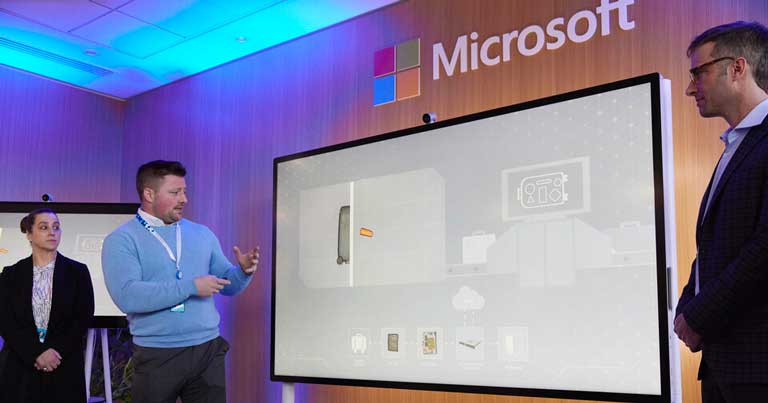The following article was published by Future Travel Experience
Initial testing of the algorithm which took place at Heathrow has shown a success rate of over 70% in identifying trafficked animals.

Heathrow has teamed up with Microsoft to trial the world’s first artificial intelligence (AI) system to combat illegal wildlife trafficking.
The initiative, named ‘Project SEEKER’, detects animal trafficking in cargo and baggage passing through the airport by scanning up to 250,000 bags a day. Initial testing of the algorithm which took place at Heathrow has shown a success rate of over 70% in identifying trafficked animals, including ivory.
The idea of the project is that by identifying more trafficked items and earlier, authorities have more time, scope and information to pursue criminal traffickers and combat the $23 billion illegal wildlife trafficking industry.
In addition to Microsoft, Project SEEKER has been developed in partnership with UK Border Force and Smiths Detection and is supported by the Royal Foundation. Microsoft developers have taught Project SEEKER to identify animals or products, and trials at Heathrow have demonstrated the algorithm can be trained on any species in just two months.
As part of Project SEEKER, an extensive library of X-ray images taken from Smiths Detection’s CTX 9800 baggage scanners at Heathrow were used to train the Microsoft AI for Good model. The machines can screen up to 250,000 bags a day, generating a multitude of data for inspection.
The technology automatically alerts security and Border Force officers when it detects an illegal wildlife item in a cargo or baggage scanner, and objects seized can then be used as evidence in criminal proceedings against smugglers.
Jonathan Coen, Director of Security at Heathrow Airport, said: “Project SEEKER and our partnership with Microsoft and Smiths Detection will keep us one step ahead of traffickers, by exploring new technology that will help us protect the world’s most precious wildlife. We now need to see more transport hubs deploy this innovative system, if we are to take meaningful action on a global scale against this illegal industry.”
Daniel Haines, AI Specialist and Project SEEKER Lead at Microsoft, said: “Illegal wildlife trafficking has a devastating effect for the decline of species and earth’s natural environments. It is a complex illicit trade but with the right AI intervention deployed in the right places, we have a real possibility of dismantling it. Project SEEKER shows the potential for data and AI to enable enforcement teams to crack down on wildlife trafficking like never before.
“Improved rates of detecting illegal wildlife trafficking at transit hot spots is just the start. The data captured by authorities will allow them to create a clear picture of where smuggling starts, its routes and destinations, leading to a more effective and collaborative approach to stamping out these criminal networks.”
Article originally published here:
Heathrow partners with Microsoft to trial AI tool to detect wildlife trafficking
from Future Travel Experience https://ift.tt/3nOtq6d
Comments
Post a Comment